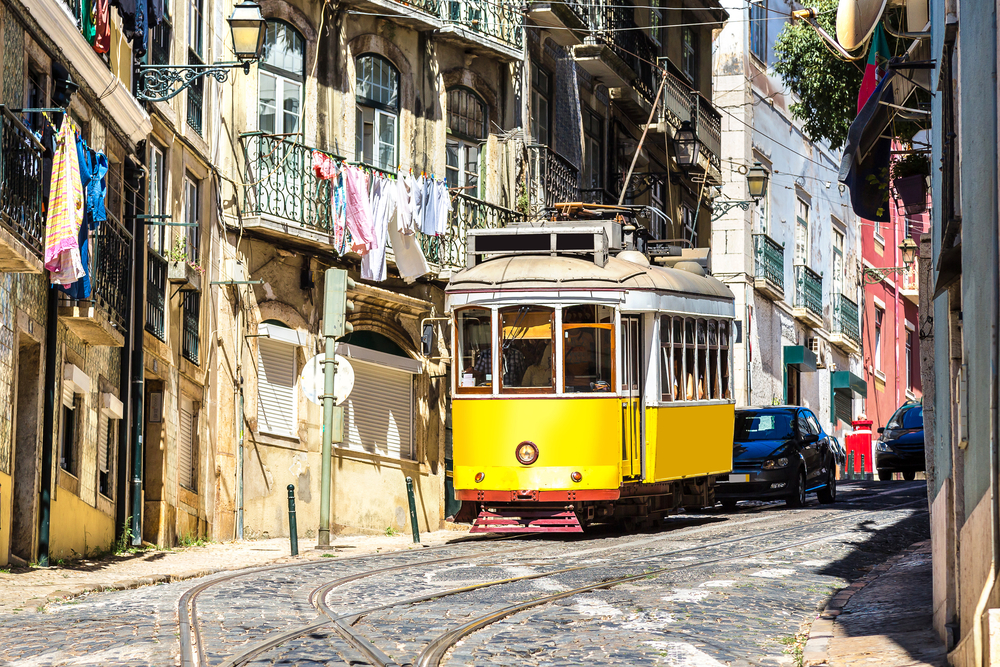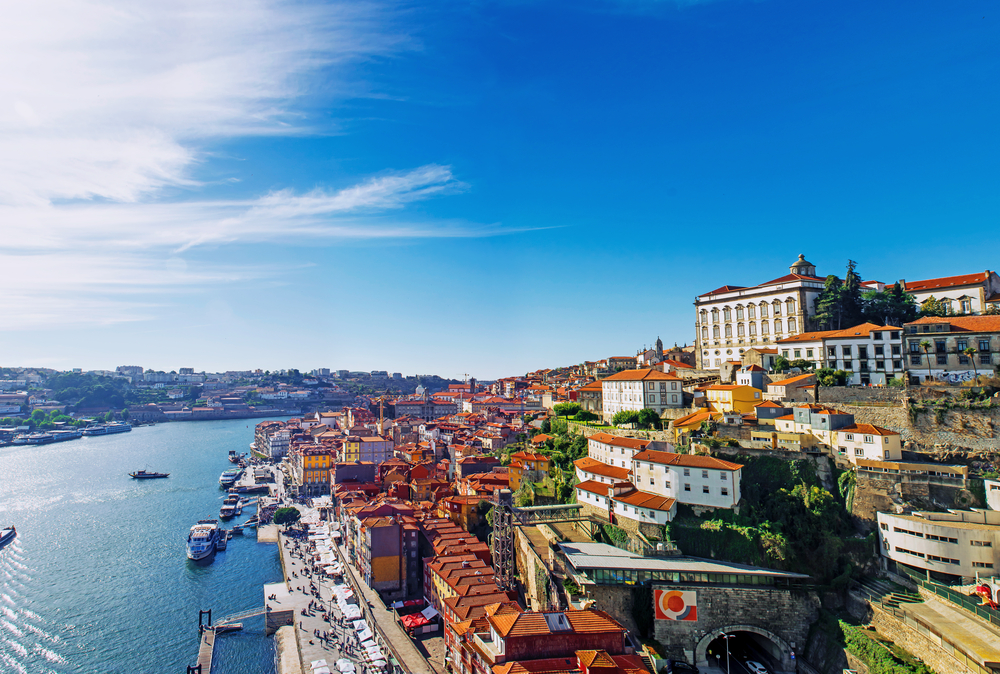Portugal’s ‘golden visa’ in peril: Blame game ensues as property prices reach new heights
Portugal is considering scrapping its “golden visa” program. But scheme proponents say it is not to blame for soaring values pricing locals out of the market

In a country where 50 percent of workers earn under EUR1,000 (USD1,101) a month, Portugal’s “golden visa” scheme was controversial from the start. Introduced under the centre-right Social Democratic government of Pedro Passos Coelho in 2012, the officially titled Authorisation of Residency for Investment program allowed high-net-worth international investors to reside in Portugal and start businesses by, among other routes, purchasing property worth over EUR500,000.
Now, the ruling Socialist government of Prime Minister Antonio Acosta is seeking an end to the golden visa in a raft of hard measures aimed at tackling Portugal’s housing crisis, which has seen prices swell by as much as 150 percent since 2012.
But Acosta’s efforts to reverse the golden visa have met fierce—and so far successful— opposition. After announcing in February of this year that he would rescind all visas issued under the scheme and immediately void applications submitted after February 16, Acosta was forced to backtrack in the face of mounting pressure from local governors, constitutional lawyers, and property developers.
One of Portugal’s original constitution drafters of 1976, Jorge Miranda, has come out to describe the draft law as unconstitutional. Likewise, the Portuguese president, Marcelo Rebelo de Sousa, has described it as “unfeasible” and called the bill a “poster law” designed to bolster support for the Socialist party rather than effect real policy change.
“When the golden visa program was introduced in 2012, the Portuguese economy was on its knees and desperate to raise non-debt funding after the EU bailout of the PIIGS [Portugal, Italy, Ireland, Greece, Spain],” comments Paul Williams, CEO of La Golden Visa, a firm that facilitates the acquisition of residency, immigration, and citizenship through investment in Portugal.
“The golden visa helped turn the economy around and since that time has been the source of over EUR6 billion in inward investment into the Portuguese economy, or around three percent of GDP,” he continues.
But Portugal’s booming real estate market has come with consequences for its local population. In 2022, the average rental price jumped 37 percent, according to a report by real estate platform Casfari. In a study of over 180,000 properties around Paris, Lisbon, Madrid, and Milan, Casafari found that Lisbon’s average price per square metre of EUR21 is now nearly equal to Milan at EUR23, and outstrips the capital of Spain, where the average income is around twice as high.
Many argue that the EUR6 billion of investment that the scheme has generated for Portugal’s real estate market has negatively impacted local communities.
Commenting in May 2022, when the proposal to end the golden visa was first rejected, the Portuguese Communist Party (PCP) said in parliament that the scheme had generated “almost no productive investment or job creation” and only “a clear contribution to real estate.
Indeed, of the 12,000 visas issued, around 85 percent have been through property investment. As of December 2021, there had only been 20 visas issued based on job creation, with the remaining number issued for other investments such as capital transfer and purchasing of company shares.
Left Bloc (BE) politician Mariana Mortagua said during the May 2022 debate: “We know who the golden visas serve, and we know who buys them and for what: China, Angola, Russia. Autocratic regimes where parasitic elites germinate, who shop for real estate in Europe in exchange for a residence visa and the opportunity to launder their money.”
But Mortagua’s generalisations only half stack up. While statistics published by the Portuguese Immigration and Border Service (SEF) show that around 50 percent of the visas issued under the scheme have been for Chinese nationals, only four percent went to Russian nationals, equal to South Africa and fewer than Turkey.
Vasco Carvalho Marques is a tax lawyer for the law firm TRFA, who works with clients applying for visas on the scheme. For him, property investments from China and other countries have had far less consequence on Portuguese property prices than the shortterm rental market of Airbnb and other holiday lets, which, he says, are not driven by golden visa applicants from China.
“What we see in our client profile is that they are not in the short-range markets,” comments Marques. “When we had the revolution of Airbnb, it became very attractive to come from a city that’s a two to three hour flight away from Lisbon and spend a weekend here. This caught most of the houses in the city centre, which were not purchased on golden visas. These houses in some historic areas were in ruins. This has sent the traditional citizens of Lisbon away from the city.”

Interestingly, residential properties in central Lisbon, Porto, and coastal towns on the mainland are exempt from the golden visa requirements, and yet these have seen the most dramatic increase in property prices.
“In the last few years, the golden visa has had zero effect [on property prices] as all the investment in the major cities and coastal areas has to go into commercial projects, typically hotels,” says Williams. “The current housing crisis is caused by other policy failings, in particular lack of construction of new homes.”
As it stands, proponents of the golden visa are winning their case to keep Portugal open to foreign investors. But it’s not just Portugal’s golden visa scheme that’s on trial here. With Ireland terminating its form of golden visa in March, and similar schemes currently operating in Greece, Malta, and Spain, 2023 might prove a turning point for foreign investments that were once seen as a quick fix to the 2008 financial crash.
Brussels is also intervening. Last year, the European Commission pleaded with European governments to stop selling citizenship to investors amid fears of security risks.
The golden visa has had zero effect [on property prices]. The current housing crisis is caused by other policy failings, in particular lack of construction of new homes
“In my opinion, whether it’s in Cyprus, Malta or Spain, all these projects have a positive side, and some negative aspects,” says Marques. “I think that the balance for Portugal has been very positive. But perhaps now, the connection between the golden visa and real estate needs to close. The visa could continue not with the need for investment in real estate, but in acquiring public debt, or investing in other commercial areas.”
But not everyone takes Marques’ balanced stance. “If Portugal ends its golden visa,” says Williams, “it will be the end of Europe’s most successful golden visa program.”
The original version of this article appeared in PropertyGuru Property Report Magazine Issue No. 178 on issuu and Magzter. Write to our editors at [email protected].
Recommended
This duo is revolutionising textiles by blending traditional craft with cutting-edge design
Ausara Surface brings unconventionality and innovation to experimental textile collections
ARES White Paper Volume 3: The era of adaptive reinvention
Pioneering sustainable and innovative practices in urban development
ARES White Paper Volume 2: Unravelling the power of data revolution in real estate
Insights on proptech, smart cities, and sustainable development
ARES Digital White Paper Volume 1: The fundamentals of responsible building
Green and climate heroes join forces to discuss how Asia Pacific can weather the current environmental crises and the looming effects of climate change







